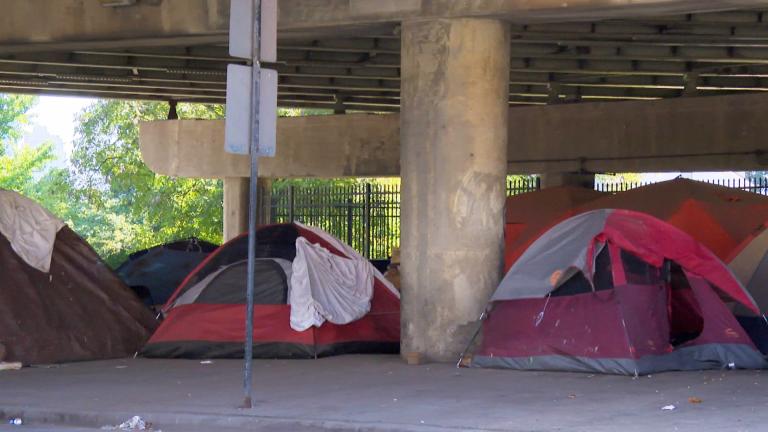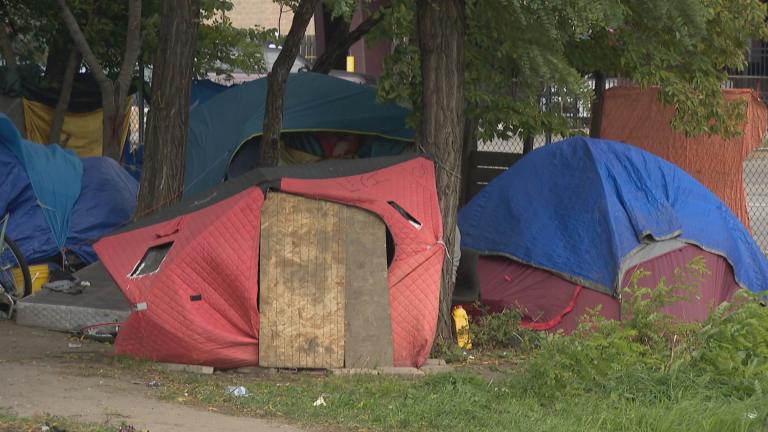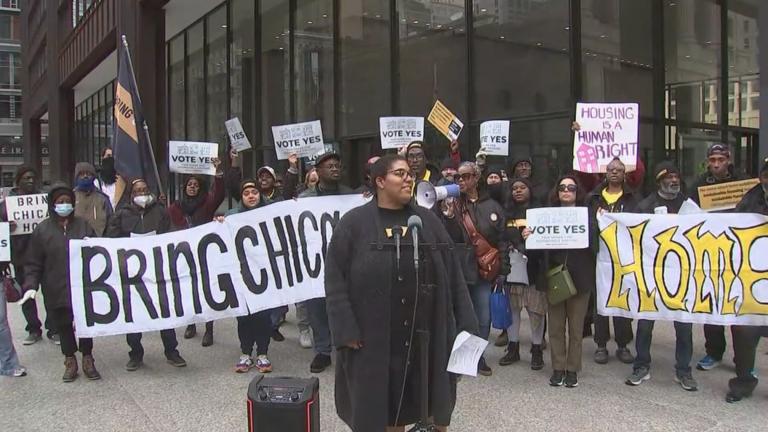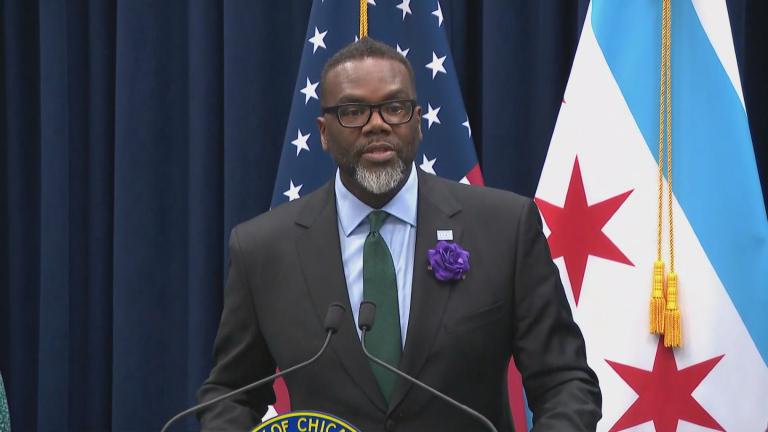The fight to end homelessness remains an uphill battle. As part of the Chicago Recovery Plan, a rapid rehousing program has been operating since 2020. A local social service organization spearheads the initiative connecting people facing homelessness to agencies in one space.
Living in a shelter is something Michelle Kearney never thought she would have to experience.
“I got homeless after my mom passed away on March 18, 2020, and then my dad passed away on April 19, 2020, right after my birthday,” Kearney said.
Kearney has been staying at one of Olive Branch’s shelters for the last five months, but she is working with the organization to get a place of her own.
“I would love to have my own space again,” Kearney said. “It’s so much better. Peace and quiet, no one waking you up at 6 a.m. and having to stand in line for the bathroom.”
Olive Branch is one of the oldest organizations providing housing and human services to people facing homelessness.
Hebron Morris has worked for the organization for the last 22 years. He said helping people is something his parents instilled in him.
“They always taught me to respect everyone and see people as people,” Morris said.
Read More: New Reports Examine the Housing-First Approach to Addressing Homelessness
Olive Branch is one of the many agencies participating in Accelerated Moving Events, a program using federal funding to connect clients to housing, among other services.
“There used to be a system where you would have to go to one location to fill out paperwork, another to look at housing, and another to look at furniture,” said Jennifer Grandberry with All Chicago. “If you recall, during the pandemic, that wasn’t safe. So we developed these AMEs (Accelerated Moving Events) out of that need and discovered it was really effective.”
During an event, clients work with the AME team to browse apartment units, fill out an application and pick out furniture from the Chicago Furniture Bank.
“It allows those agencies to meet better the needs of the clients that not only they have, but that are around them in the community,” Grandberry said.
According to the city, more than 6,000 people are reported to be homeless in Chicago. The number of people staying in a shelter has increased by 14% since last year.
“Homelessness does not mean someone is criminal or dirty or poor, necessarily,” Morris said. “(It) just means unfortunately circumstances have caused them not to have a place to stay.”
Every week, the All Chicago organization partners with different agencies to host these events, and every month, the organizations serve people living in encampments.
“A participant can get market-rate housing that is really subsidized for the first few months, and as they progress, they need to develop their income,” Morris said. “They have a case manager that works with them and helps them find resources to develop their income.”
Each client comes in with a different life experience.
Nicolas Franco shares what his life was like growing up in the streets, leading him to serve time in prison.
“The environment you were raised in leads you down that path, so I never looked at it that much as a choice, but it was kinda like a natural progression for us,” Franco said. “My stepfather was a big drug dealer, my mother used drugs, there was domestic violence in the household, and I never thought that was not normal.”
Today, he said his motivation for a better life is his teenage daughter.
“When these people gave us a home so I can build myself back up — you cannot explain the joy that’s filled in my soul right now,” Franco said.
Through the program, Franco said he can move into a two-bedroom apartment with his daughter in the next month.
“I’ve slept on cement benches before,” Franco said. “It doesn’t affect me as much, but I’m more happy for my daughter. This is the first time we are getting our own place since she’s been here since February.”
Since Accelerated Moving Events started during the pandemic’s peak, All Chicago said, close to 1,800 households have benefited.







